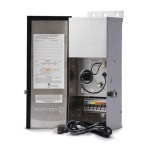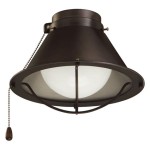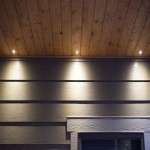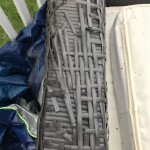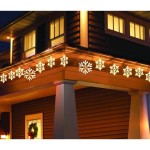Building a DIY Outdoor Wood Burning Furnace: A Guide for Beginners
A wood-burning furnace is a valuable asset for those seeking a sustainable and cost-effective way to heat their homes or workshops. While commercially available options exist, building your own outdoor wood burning furnace offers a rewarding DIY project that can save you money and provide a sense of accomplishment. This guide will outline the essential steps and considerations involved in constructing a safe and efficient outdoor wood burning furnace.
1. Planning and Design
Before embarking on the construction process, it is crucial to spend time planning and designing your furnace. Factors to consider include the size of your space, the desired heating capacity, and the materials available. Here are some key aspects of the planning phase:
a. Determine the Size
The size of your furnace will dictate its heat output and fuel consumption. Consider the area you wish to heat and the expected heating needs. A larger furnace will require more fuel but can provide a higher output. Consult online resources or consult with a local heating specialist for guidance on sizing your furnace.
b. Material Selection
The choice of materials can significantly impact the furnace's durability, efficiency, and safety. Steel is a common choice due to its strength and resistance to high temperatures. Other options include cast iron or refractory bricks. Ensure the materials you select are compatible with high temperatures and can withstand repeated heating and cooling cycles.
c. Design Considerations
The design of your furnace should prioritize safety and efficiency. Consider incorporating features such as a firebox with a grate, an ash pan for easy cleanup, and a flue for smoke and gas exhaust. A well-designed furnace will ensure proper airflow and optimize combustion, maximizing heat transfer and minimizing emissions.
2. Construction Process
Once you have a detailed plan, you can begin the construction process. Ensure you have the necessary tools and equipment, such as a welding machine, cutting tools, and safety gear. The following steps provide a general guide:
a. Fabricating the Firebox
The firebox is the heart of your furnace, where the wood is burned. Start by cutting the steel plates to the desired dimensions. Use welding techniques to create a strong and sealed firebox. Ensure the firebox is appropriately sized to accommodate the fuel load and provide adequate space for combustion.
b. Installing the Grate
The grate supports the burning wood and allows for airflow. It is typically made from steel bars spaced apart to promote circulation. Secure the grate within the firebox using welding or other appropriate methods. Ensure the grate is strong enough to withstand the weight of burning wood.
c. Building the Flue
The flue is responsible for channeling smoke and exhaust gases away from the furnace. It is typically constructed from steel or cast iron pipes. Connect the flue to the firebox and extend it vertically upward at least 8 feet to ensure proper ventilation and prevent the accumulation of harmful gases.
3. Safety and Operation
Safety is paramount when operating a wood-burning furnace. Ensure you understand the potential risks and follow proper operating procedures. Here are some important considerations:
a. Location and Clearance
Choose a safe location for your furnace, away from flammable materials and structures. Maintain appropriate clearance around the furnace to prevent potential fire hazards. Consult local building codes for minimum clearance requirements.
b. Fuel Selection
Only use dry, seasoned wood in your furnace. Avoid using treated or painted wood, as these materials can release harmful chemicals during combustion. Store fuel away from the furnace to prevent accidental fires.
c. Maintenance and Inspection
Regular maintenance is essential for the safe and efficient operation of your furnace. Inspect the furnace for any cracks, leaks, or damage to the firebox, flue, or other parts. Clean the ash pan regularly to prevent ash buildup and ensure proper airflow. Clean the flue annually to remove creosote buildup and reduce the risk of chimney fires.

Plans How To Build A Wood Outdoor Boiler

Plans How To Build A Wood Burning Outdoor Furnace Stove Outside

Build A Clean Burning Outdoor Furnace Water Surrounds Firebox Wood Burner

Plans How To Build A Wood Outdoor Boiler

Sustaility S External Wood Burner Aday

A Out Side Wood Stove That Works Great Outdoor Furnace Burner Burning

I Built A Forced Air Outdoor Stove Arborist Chainsaw Tree Work Forum

Making An Outdoor Wood Furnace With Bob Part 1

Wood Burning Furnace Plans Diy House Central Heat Outdoor Stove Boiler On Ebid United Kingdom 214813265

Outside Wood Forced Air Furnace Outdoor Burning Burner
Related Posts
